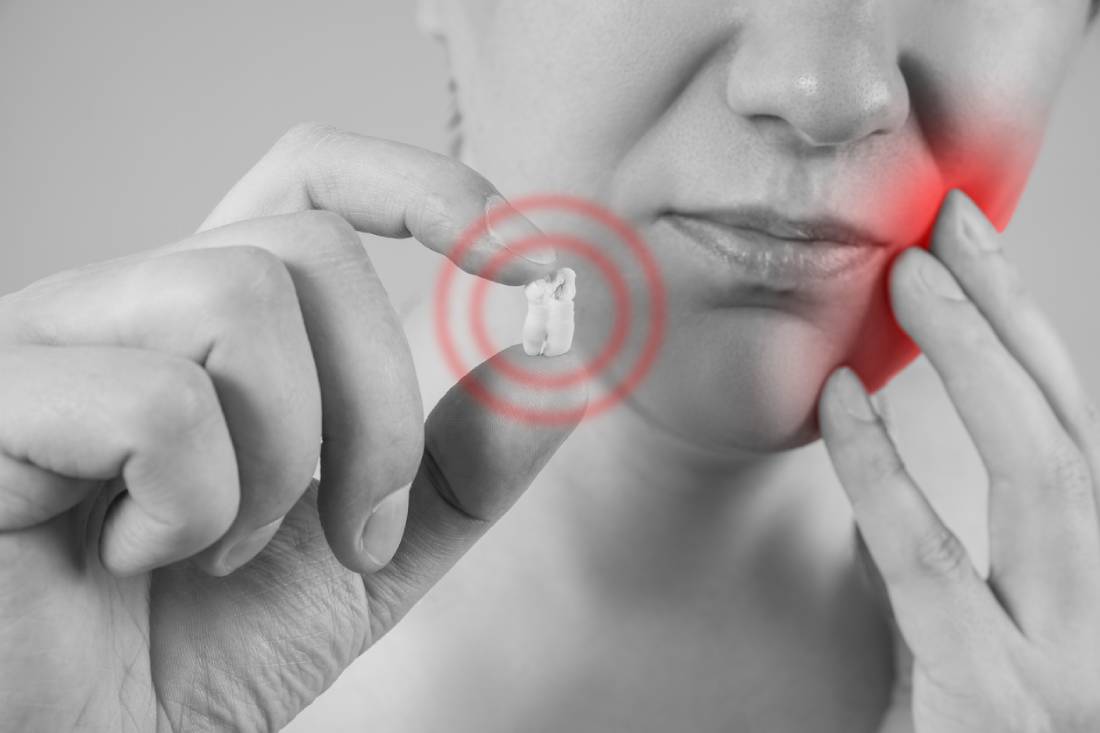Wisdom teeth removal is a standard surgical procedure performed every day at each dental office. In this article, we discuss signs your wisdom teeth should be removed.
Signs Your Wisdom Teeth Should Be Removed
Not everyone has to have their wisdom teeth removed if their wisdom teeth do not cause any oral health issues. However, many people can have one or several reasons to have their wisdom teeth extracted:
Impacted Wisdom Teeth
In some cases, wisdom teeth can not erupt from the gum and stay hidden underneath. This can happen due to a lack of space in the mouth or due to the angle at which the wisdom teeth are positioned. This condition is called impacted wisdom teeth and can cause pain when chewing or chronic inflammation of the gums.
If you have impacted wisdom teeth, your doctor will most likely recommend removing them, as they do not serve any function and only cause oral health issues. During the procedure, your doctor will make an incision in your gum to access the tooth and then extract it.
Partially Impacted Wisdom Teeth
Partially impacted wisdom teeth is a condition when only a part of a wisdom tooth erupts from beneath the gum, but the other part stays hidden within the gum. The reasons and complications of partially impacted wisdom teeth are similar to those of fully impacted wisdom teeth. Also, partially impacted wisdom teeth can be incredibly challenging to clean effectively, which can result in cavities and decay. Thus, removal of partially impacted wisdom teeth is almost always recommended.
Recurring Cavities
For some people, it might be challenging to clean their wisdom teeth properly on a regular basis due to their position in the mouth. Such wisdom teeth are more likely to sustain cavities or tooth decay. Of course, cavities in wisdom teeth can be treated with dental fillings similarly to those in the rest of your teeth. However, since the issue with cleaning wisdom teeth is not solved, they can get reinfected again.
If this is the case, it will be easier and less costly in the long run to remove your wisdom teeth as opposed to treating them over and over again. Also, it is not advisable to keep infected teeth in your mouth since oral infections are closely related to general health issues, such as heart, lung, joints, and gastroenterological problems. On top of that, untreated tooth decay can spread to the surrounding teeth and also cause periodontal disease.
Preparation for Orthodontic Treatment
When you get an orthodontic treatment, your teeth are gradually moved into new and correct positions. Sometimes, there is not enough space in the mouth for the teeth to move. In such cases, your orthodontist will most likely recommend removing your wisdom teeth to create more space for the remaining teeth in your mouth.
Cysts on the Gums Around Your Wisdom Teeth or Inflamed Gums
If you notice cysts on the gums around your wisdom teeth, or your gums appear swollen and irritated, it might be a sign of decay within your wisdom tooth, even if it appears fine on the surface. Other signs of such infection might include bad breath or bad taste in the mouth. Typically, such infection has to be treated with a root canal. However, in most cases, it is easier and less costly to remove infected wisdom teeth than to perform a complicated root canal procedure.
Temporomandibular Joint Dysfunction
In some cases, improperly positioned wisdom teeth can cause bite issues and temporomandibular joint dysfunction, which can lead to chronic headaches, neck pain, bruxism, and other issues. If your doctor establishes that your temporomandibular joint dysfunction is connected to the position of your wisdom teeth, they will recommend you have the teeth removed as a part of the TMD treatment.
Is Wisdom Teeth Removal Painful?
Wisdom teeth removal typically does not hurt or cause discomfort since it is performed using a local anesthetic or sedation. However, you will most likely experience some pain, swelling, or discomfort for several days after the procedure. Also, there can be minor bleeding for a couple of hours after the procedure.
To alleviate the post-surgery symptoms and make sure the procedure site heals quickly, follow these rules:
- Take over-the-counter painkillers when necessary, staying within the recommended dose.
- Keep your mouth clean by brushing and flossing twice a day, but be careful when brushing around the surgery site.
- Keep a soft diet for the first couple of days after the procedure.
- Do not use a straw for drinking so as not to disturb the blood clot within the gum.
- Abstain from smoking and drinking alcohol.
Make an Appointment at Turquoise Dental
Make an appointment with a reliable and experienced dentist for a stress-free wisdom teeth removal today. Our specialists look forward to your visit.




